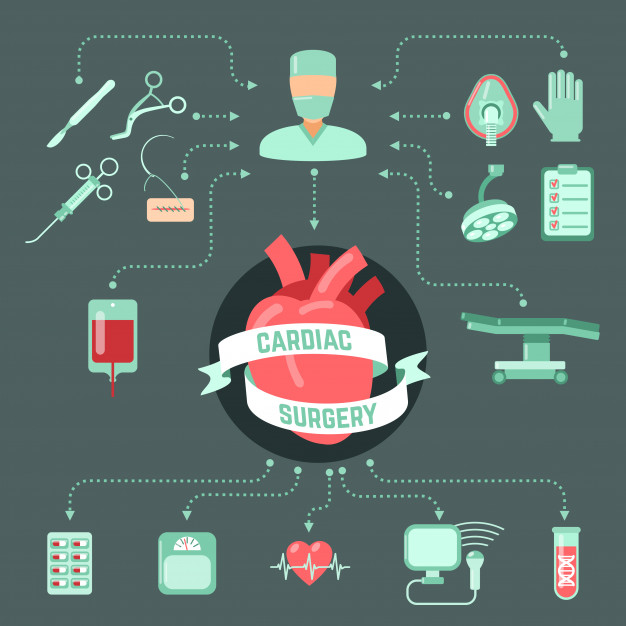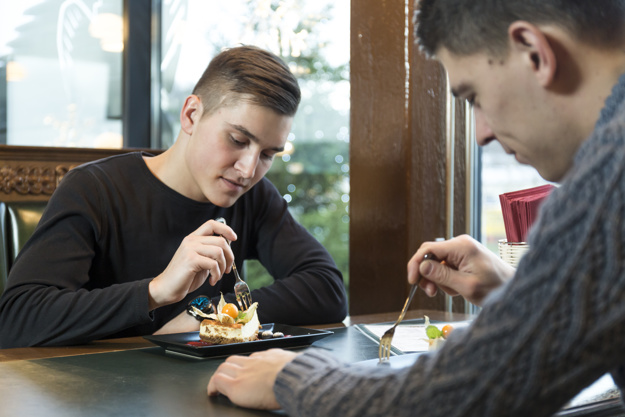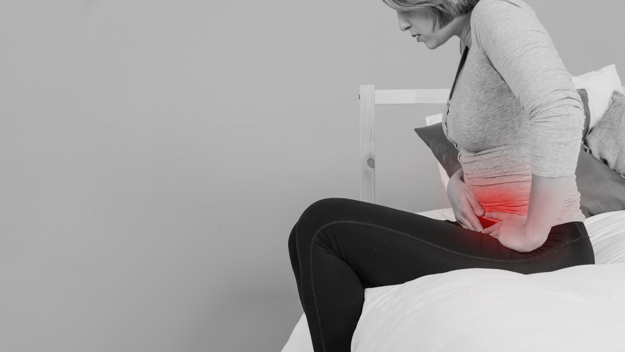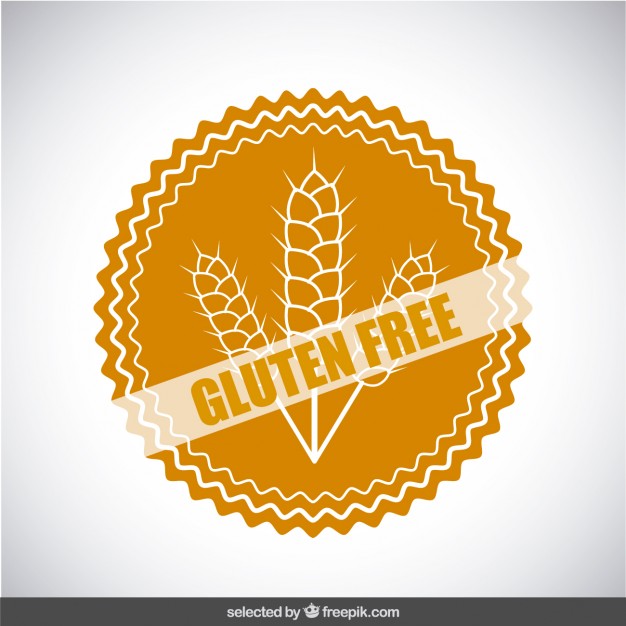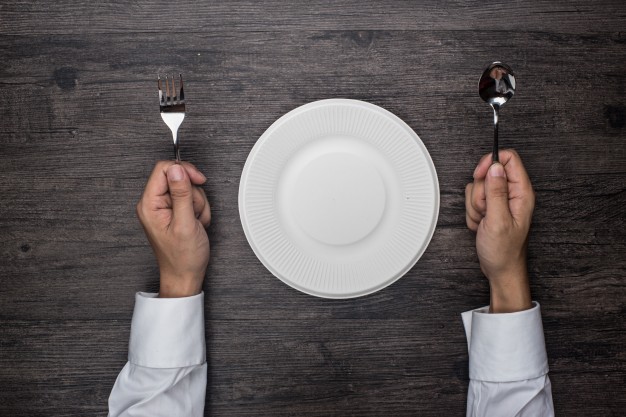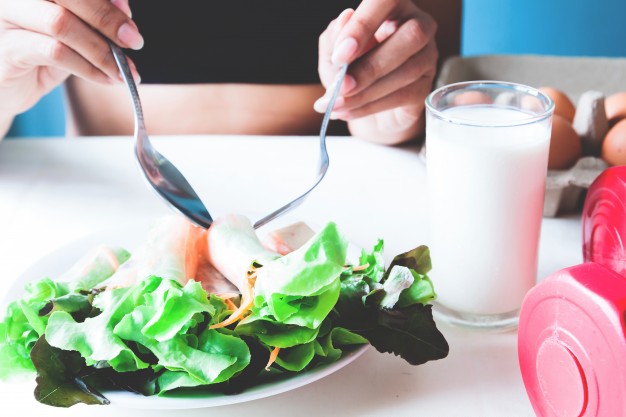Dear Pooja,
My sister was diagnosed with jaundice earlier this month. She is recuperating at home now. Currently, she is on a liquid and soft food diet. She feels weak all the time. We eat non-vegetarian food at home. I was wondering if you could help us with what she can start eating and what she should avoid. Are there any particular snacks we should give her?Jaundice has a direct effect on the digestive system thus taking care of what you eat can help you recover faster. Low fat and high fluid diet is the key emphasis. To maintain the fluid and electrolyte balance hydrate yourself with ample amounts of water, chaas, coconut water, soups, juices, smoothies and milkshakes. Eat small frequent meals so as not to load the system at one time. Good quality and quantity of protein is important to recuperate faster. White lean meats like chicken and fish can be lightly steamed or grilled and consumed about two to three times a week. Egg whites are excellent in both their quality and quantity of protein so please add them generously to your daily diet. Foods to avoid include all fried and heavy calorie laden foods including cakes and candies, extra masala and spice, extra fibre – thus peel the fruits and avoid vegetables like with more seeds like cucumber, brinjal, tomatoes, stay away from carbonated drinks and excess caffeine as they irritate the gut. Home cooked food in good hygiene, less oil, lots of fluids and even more love is the quickest and easiest route to hasty recovery. Get well soon!
Dear Pooja,
My father, 72, had an open heart surgery a few weeks ago and is better now. He did not have a heart attack, and he does not have diabetes nor high BP. What are the kinds of foods he can have now to gain back his strength? He is slim and had been otherwise fit always and is a vegetarian.Your father can most easily be the best example to what I say over and over again ‘You are what you eat’ being a wise eater thus the absence of any excess weight baggage and like you said fit always’ and therefore is metabolic disease free even now. The reason for an open-heart surgery could very well be age related plague deposition as the most noticeable characteristic of vascular ageing is the change in the mechanical and structural properties of the vascular wall. Now to help him regain his strength first focus should be on better quality proteins – being vegetarian please ensure you are giving him one-two servings of dal/pulses/sprouts daily – low fat milk and its products and if possible introduce some quinoa and soyabean weekly. Vitamins are another point to emphasis thus ensuring no micro nutrient deficiency leading to delayed healing. Two-three servings of vegetables plus an additional raw veggie juice daily (minimum three colours of vegs) along with two-three servings of fruit daily should do the trick. Ample hydration, adequate sleep and slow walks for about 15-20 minutes a day should help in better recoup and recovery. Check with your doctor or nutritionist for basic multi vitamins and some B12 as well as omega 3-6-9 supplements since he is vegetarian. Always keep the faith in the magic and the powers of healthy frequent eating and may he have a long healthy life ahead.
Dear Pooja,
My son is 14 yrs, height 5’3″ but weight is 84 kg. He started a crash diet . I want a healthy diet which can help him reduce weight but with no loss of essential elements .
His daily routine is wake up at 6:30 am and go to school at 7:30am . In school two break at 9:30am and 12:00pm respectively. After that he comes back at 3:15 and goes to the gym at 4:30 pm for a hour. Then comes home to eat some snacks. At night he eat dinner at 8:30 pm. We are pure vegetarian. Please help meIn today’s children awareness about the weight and their body size is setting in earlier then before and especially once they in their teens they are conscious of the way they look particularly in comparison to peers. Teaching them the correct relationship to food at this point (and many a times even much earlier) is most essential else they fall in to the trap of equating food to calories and thus fearing it always. Giving up food or starving then seems to be there only route to losing the excess weight they are carrying. Teaching them the importance of food through its food group system and the significance and function of each is the prime crux. Carbohydrates (which most fear – leave alone just kids) are the prime source of fuel – daily activities of running, studying, playing even just sitting requires energy that comes from carbs and this vital food group is usually the first to be omitted. Lack of adequate carbs leads to growth retardation, poor immunity, low stamina, crankiness and mood swings among a hundred other side effects. Importance of proteins for growth, height increment, wear-n-tear and repair is most crucial. I cant even stress enough on the daily inclusion of fruits and vegetables as this is what will shape their skin, nail, hair, bowel movements and so many essential internal body functions all of which depend on the vital vitamins and minerals nutrients they provide. A balance of these essentials is fundamental to live a life of quality, growth and prevention of disease. Sadly I am unable to provide a diet particularly for your son through this column but I’d strongly recommended visiting a professional that will advise and guide him in the right direction now itself. All the best!
Dear Pooja,
My 17-year-old daughter suffers tremendously during her menstrual cycle every month. During those days, she barely eats and says most foods make her feel nauseous. Are there foods that will help ease her symptoms? Should she avoid certain foods? Does staying active help? Please advise.
Painful periods is a very common problem among teenage girls and women which hinder their normal school related, household or job work. Although some pain during periods is normal, excessive pain is not. The medical term for the same is dysmenorrhea.
Now the diet during these days is the most important and not eating is going the make the symptoms of discomfort worse. A diet rich in carbohydrates (roti, rice, bread, puha, upma and the like) having a good focus of good quality protein (egg whites for non vegetarians and soya, quinoa, pulses for the vegetarians) helps to continue the wear and tear functions of the body smoothly which is high during monthly menstruation due of uterine wall breakdown. So make sure you feed her some of these foods in the any form that she likes – the cuisine, style of cooking and taste can be adjust to suit her taste buds but eating is most essential.
A diet rich in vitamin B6 or pyridoxine helps ease period pain. Include fish, beef, starchy vegetables like potato, banana , rice, fortified cereals in your diet to get good quality B6 or even a supplement (50-100mg) a few days prior to, during and 3-4 days post completion of your periods every month is a good way to alleviate this pain. Among other aids – a warm water bag or heating pad applied to the lower belly area, light circular massage on the abdomen, warm beverages, warm shower or bath and light exercise all help to ease the pain. Good luck!
Dear Pooja,
I am a 33-year-old single woman and lean on the heavier side. I’ve tried numerous diets but the effects taper off after a while. I have heard a lot about gluten and how a gluten-free diet is supposed to work wonders. Could you tell me the advantages of going gluten-free? Are gluten-free foods expensive and available easily in the city? Thank you.
Gluten-free does not only work wonders but it is the only way one can eat and prevent intestinal damage and other autoimmune diseases – but that is only for those with celiac disease or severe gluten intolerance! For those with these conditions eating gluten can be lethal and can cause severe damage to their intestines thus they are forced to follow a gluten-free diet – no other choice. Ask them how difficult it is to eat regular meals at home or at restaurants and how careful they have to be scrutinizing each product label for even minor traces of gluten in it, which can cause them deadly damage.
In the health and diet industry anything can become a rage or trend. Few prominent people follow it and say they do and lo behold half the world is trying it out. Living off gluten is not easy – imagine your daily diet without access to wheat, barley, rye, barley roti, parathas, biscuits, breads, pasta, noodles, couscous, semolina, spelt even ready to eat soups, processed cheese, mayonnaise, ketchup, salad dressing, non-dairy creamers, canned baked beans, icecreams, flavoured coffees, breaded foods, cereals, malt vinegar, beer, vodka and the list can go on. Are you prepared to let go of all these foods just so that your body can let go of some weight? Even if you can for while – any results you get will only be for the time you will stay off them – once you start eating gluten all the effects will be difficult to maintain and all the weight lost will be reversed.
Losing weight is not about deletion, it’s about sustenance. Eat all foods but learn the key in terms of quantities and methods of preparations. Start what you can always maintain (lifestyle) so that the effects you get can also always be maintained and you never have to do another weight loss battle again.
Dear Pooja,
I have erratic work hours and don’t get to eat on time. I do carry small snack pouches with walnuts, almonds, anjeer and small boxes of kurmura. I munch on fresh fruits between meetings sometimes. These help me through the day. However, after seven in the evening, sometimes our conference meetings last for continuous hours (8pm to 11pm). I know it is not right to eat late but staying up for so long (I reach home by midnight) makes me very hungry. What is the ideal food / drink that i can have before i sleep? I cant go to bed so hungry but I dont want to eat anything heavy or anything too sweet.
So happy to hear that you have learned the magic of eating small frequent snacks through the day and carry a handbag as heavy as mine – stuffed with more food than any other little things! LOL! Keep that up!
Of course you can’t sleep on an empty stomach – no one can. I know people have their own busy chaotic schedule and food doesn’t fit into the pattern many times. But you are doing a great job through the day and you could continue doing the same through the latter end as well. I’d suggest you should have your dinner early just before you enter these long marathon meetings. It could be simple frankie wraps or stuffed rotis or mixed rice with sprouts and veggies or a sandwich (all of these taste fine even when eaten cold). Through the meetings you could just gobble down a biscuit or some chana on your way in or out of a quick loo break – that way you still eating two hourly. And then once your home you are not ravenous since you ate a filling meal at 8pm (and every two hours in between) so now you could have a warm soup or a bowl of dal or a cup of milk with little fruit immediately as you reach. By the time you unwind and get into bed a good 30-45 minutes have passed and you are then good to call it a day and snooze! Good luck! And never stop the small frequent snacking.
Dear Pooja,
I am suffering from diabetes since the last six years. I have tried various diets but none seem to work for me. Ideally, which vegetables should I eat and avoid?The best most effective way to balance blood sugar levels is to eat every two hours. At the cost of sounding repetitive (over and over again) eating two hourly is the most optimum way to provide fuel to the body. When eating small meals frequently there is never excess rise in the sugar levels that lead to the excess being stored as fat and neither are there lows or drips in the blood sugars levels that lead to binge eating large portions (especially of wrong meals) that soar the sugar to unnecessary levels. I have effectively improved the glycosylated hemoglobin (average sugar control in the body for an average of three months) of so many just by this simple formula of frequent small meals. While trying to control the sugar levels eating two hourly also helps you knock off weight, which in turn again helps in managing the diabetes better. Another ace in the management of diabetes and in general a healthy lifestyle is to clock about three to four hours of cardio a week. All vegetables are good for you Aliyas I wouldn’t worry about vegetables – even a potato upto a 100grams a day is allowed. So start small and simple- break up everything you eat into small eight to ten meals a day and get your diabetes and your health in your hands. Good luck!
January. No month bursts with as much promise as this one. A fresh start to the year, a clean slate. It’s when gym memberships increase, when resolutions to get healthier spike. But come June or July -or even February or March -and your enthusiasm dims… till it’s December again.
AGAIN
Why does this cycle repeat itself? What is it about new year resolutions -especially the ones that seem to be made for fitness -that fail? I think the answer lies in not just understanding your body but also your mind.
UP AGAINST AGE-OLD HABITS
If you have never -or barely -exercised in the previous year, you can’t expect to suddenly hit the gym six times a week, and subsist on kale, lettuce and fresh air when the clocks turn over from December 31 to January 1. Your body doesn’t understand calendars, it understands repetition eat healthy long enough, exercise regularly, and your body slowly begins to form healthy habits and expects, sometimes even craves, a lifestyle that’s leaner and greener.
SEEKING INSTANT GRATIFICATION
Changes that stick are changes that you introduce gently, patiently and systematically. Good habits take time to form. And how much time it takes varies from body to body. Your body and mind will take time to adapt to your new lifestyle. At times, this may frustrate you because your unfit habits try to latch on for as long as possible.
Pick yourself up everytime you slip. Make a fresh start. You may fail a 100 times, but you need to succeed just once to get yourself going. Setting new habits is one of the hardest things to do. Also, the time frame to reach a healthy goal varies from person to person. Some bodies respond quickly, some take time. But everyone always gets there.
YOU HAVEN’T PLANNED WELL
Fitness and weight loss require planning, thought and organisation. Have you selected the right meal plan that fits your existing eating habits? Do you have access to healthy ingredients? Are you prepared with healthy snacks in your bag in case you feel hungry during the day? If you are a working professional or can’t cook, do you have the support system or arrangement to get healthy food?
Have you chosen a fitness programme group that’s right for you (not too advanced or strenous)? Is the gym too far away from your home or office?
You need to make access to fitness convenient for you. You don’t fit your life to fitness, you have to fit fitness into your life. It’s called the battle of the bulge because it takes time and hard work until fitness becomes a permanent part of your life. Remember that it is not you against someone else it’s you against you. If you set your own bar and compete with yourself, you will always win because it’s your race. On your terms.
We know how fat gets into our body. We eat cakes laden with cream, samosas laden with oil and malai kulfi laden with, well, malai. Food high in fat is a sure way for fat to eat its way into ou body through our mouth, sit in places we do not want it to sit and stay stubbornly put until we do something about it. But do you know how fat leaves the body?
What happens when the extra jiggly bits on your arms, your thighs, your abs start looking slimmer because you have been working out or dieting, or both? What happened to the excess fat that you had accumulated? Where has it disappeared? Any guesses? Surprisingly, not many qualified doctors, nutritionists and fitness trainers know the correct answer. Welcome to The Big Fat Mystery.
WHERE DOES THE FAT DISAPPEAR?
To understand where fat goes, we first need to understand what fat is.
Fat tissue is composed of lipids biological molecules made up of compounds of hydrogen, oxygen and carbon that store energy in their bonds. When we exercise or make successful attempts to burn fat, the molecules are broken apart, the enerd gy stored in these l bonds is released.
But when this hap pens, where does the extraneous `padding’ that lines our bellies and bums go? r Well, while the energy is released, the hyg drogen, carbon and oxygen in those molecules still remain in your body.
What , becomes of them?
How do they get released?
The same way they came in. We exhale it. Biolo gists at the University of New South Wales (Australia) have now conducted in-depth research on where the mass of your fat goes after you burn it inside your body. For every kilo of fat you burn, 80 per cent of that mass is released as carbon dioxide when you exhale. The rest of the 20 per cent is released through wa ter urine, sweat or tears, if you really hate to exercise.
FACT OF THE `MATTER’
Why this happens is quite simple really. Remember, matter cannot be destroyed it can only change form. For example, ice and steam are just changed, altered states of water. In other words, if we accumulate fat in terms of actual physical visible fat, it needs to change its form to another if it has to be expelled during the burning process.
And why does this matter? It’s good to understand what happens to the fat that you are burning because when you are on that treadmill, huffing and puffing away, you will know that every breath you exhale is a sign of fat leaving your body, and that you are inching closer to losing those inches.
When you are exercising at a pace that’s optimal for fat burning, know that the sweat you see on your clothes is not just sweat, and exhalation is not just exhalation.
It’s a sign that a particular mass of fat has truly been expelled from your body. And depending on how disciplined you are -it’s not going to return soon.
You’ve been married for a few years and you feel it’s time to get pregnant.
You’d like to increase your chances of fertility. What should you do?
FOR STARTERS, EAT RIGHT

The National Infertility Association in the US recently stated that almost 30 per cent, or nearly one-third, of infertility cases are due to `weight extremes’, i.e., where the woman is either excessively overweight or underweight. This matters because even a five per cent reduction in weight can improve chances of having a baby. That’s what the study revealed. And, at the other end of the spectrum, women with a BMI (Body Mass Index) of less than 18.5 could have problems with ovulation or menstrual cycles, and by extension, conception.
In other words, there is a definite correlation between nutrition and fertility.
Can you eat your way into pregnancy?
In short, `yes’ (all other indicators being normal), but the answer is also two-fold.
First, a sensible diet -and here, I stress on sensible -will reduce your weight if you are overweight. Protein, fats, carbs, vitamins and minerals must be represented in their recommended quantities for you to nourish your body and lose weight at the same time. Fad and crash diets will starve your body of crucial nutrients that are needed for conception.Please note that, like breathing or digestion, conception is also a bodily function that needs adequate nourishment.
Second, it’s not just eating right, it’s also about eating smart. There are foods that boost ovulation. Iron-rich diets -foods like beans, eggs, dals, whole grains, spinach -reduce the chances of ovulatory infertility. And while folic acid doesn’t boost fertility, it is vital for the prevention of neural tube defects.
Note: The neural tube is what ultimately develops into the baby’s spine and brain 3-4 weeks into the pregnancy a time when most women may not even be aware that they are carrying a baby.
Additionally, a group of Harvard researchers has created the `fertility diet’, designed to boost fertility, bringing about a 66 per cent reduction in risk of ovulatory infertility for those who suffered from it, and an additional 27 per cent reduction in the possibility of infertility from other causes. Key elements of the diet include…z Less bad fats, like trans fats, and more good fats like menstruated fats (olive oil and avocados) z More vegetable protein, like dals, and lesser animal protein (chicken, mutton, pork etc) z More fibre z Multivitamins z More vegetarian sources of iron as opposed to non-veg sources.
MEN, WATCH YOUR DIET
And it’s not just the women. Men need to keep a watch on their diets too. Aspiring fathers also need to maintain their weight and eat right because male obesity impacts testosterone and other hormone levels. In addition, low sperm count and low motility are conditions that are more common in overweight and obese men.
There’s nothing strange or different about eating for fertility. Watch what you eat, watch your weight and watch yourself as you create a new life and with it, induct yourself into one of the world’s biggest societies: parenthood.


